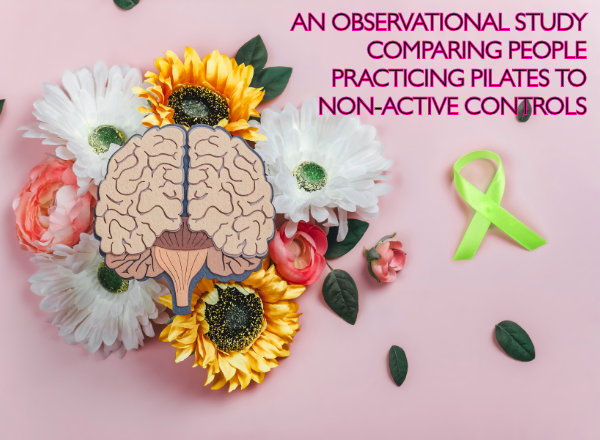
An Observational Study Comparing People Practicing Pilates to Non-Active Controls
For Mental Health Awareness Day, we’re excited to share new research that speaks directly to Pilates instructors and studio owners. It reinforces what many in our community have long believed: Pilates can do more than build strength and improve mobility—it can support mental health.
A recent observational study, “Benefits of Pilates on Depression, Anxiety, and Stress: An Observational Study Comparing People Practicing Pilates to Non-Active Controls” by Guidotti, Fiduccia, Morisi, and Pruneti, explored the effects of a three-month, once-weekly mat Pilates programme. The results were compelling: participants experienced significant reductions in anxiety, depression, and somatisation compared to non-active controls. The study also found improvements in stress-related behaviours, particularly participants’ ability to “take one’s mind away” from daily demands and pressures.
Why this matters to you as a Pilates professional:
-
Broader impact: Your classes aren’t just shaping bodies—they may be supporting mental wellbeing, helping clients manage stress, anxiety, and low mood.
-
Evidence-based benefits: When clients ask, “What’s the benefit besides fitness?”, you can confidently point to peer-reviewed research.
-
New opportunities: Consider developing classes or workshops focused specifically on stress relief, emotional resilience, or mindfulness-based Pilates, particularly for populations at risk.
This study is a reminder of the powerful mind-body connection your teaching fosters. Take a moment to reflect on how your sessions might already be supporting your clients’ mental health, and imagine the possibilities if you design programmes with this intention in mind.
Source: https://pmc.ncbi.nlm.nih.gov/articles/PMC11988874/

Comments are closed.